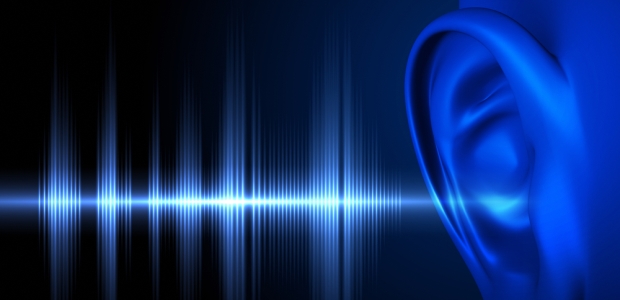
NSF Launches Hearables Challenge
The contest seeks algorithms or methods for increasing the clarity of conversations in noisy settings.
The National Science Foundation has kicked off an interesting challenge, the Hearables Challenge, seeking "proposals for algorithms or methods for enhancing the clarity of conversation in noisy settings." The challenge's website lists its key dates: April 25 launch, May 24 webinar, June 26 submission deadline, and the winners announced in September 2017.
On the website are a sample audio file and a forum where NineSigma's Kevin Andrews, Ph.D., senior program manager (email [email protected]), is the moderator. The NSF team members listed are Wendy Nilsen, Ph.D., listed as program director, Smart & Connected Health, and Beth Linas, MHS, Ph.D.
"Think about your friends, family, neighbors, and co-workers," the introduction to the NSF-sponsored challenge says. "You probably know someone with hearing loss—an elderly grandparent or a veteran who served our country—and you probably know how hearing loss impacts one's ability to communicate. According to the Committee on Accessible and Affordable Hearing Health Care for Adults, there are 30 million Americans over 12 that have hearing loss, and hearing loss worsens as we age. Many with hearing loss do not seek or receive hearing health care because of cost, availability of services, stigma, lack of realization that they have hearing loss, and belief that nothing can help them.
"While some hearable technologies (i.e. hearing aids and assistive listening devices) can enhance hearing for many individuals, there are situations where these technologies do not perform optimally. One particularly challenging situation for people with hearing impairment is understanding conversation in a noisy environment such as a restaurant. Inability to hear clearly because of background noise and intermittent peaks in noise makes following a conversation difficult. Amplification of speech sounds will also amplify the background noise. The National Science Foundation seeks to alert research communities that this problem is an opportunity. The goal of this challenge is to develop algorithms or methods that could improve hearing in a noisy setting."
The total prize pool is made up of $146,000 in cash prizes and the opportunity to present a poster about the winning solutions at Ubicomp 2017, the 2017 ACM International Symposium on Pervasive and Ubiquitous Computing, taking place Sept. 11-15 in Maui, Hawaii:
- First place: $80,000 and an invitation to present at Ubicomp 2017
- Second place: $60,000 and an invitation to present at Ubicomp 2017
- Third place: An invitation to present at Ubicomp 2017 and $3,000 toward expenses
- Fourth place: An invitation to present at Ubicomp 2017 and $3,000 toward expenses
The website explains that competitors will use a pre-recorded audio file of a spoken conversation in a noisy restaurant setting to develop the proposed solution and report the words heard in the recording, and that the successful technology will:
- Enable clear conversation spoken at a normal level between two or more people in a room with background noise and other conversation that vary in intensity
- If hardware is utilized, use consumer-quality devices
- Offer real-time processing between words spoken and speech extracted, to enable normal pace of conversation
The final test audio files will be made available on the challenge site approximately one week before the submission deadline.